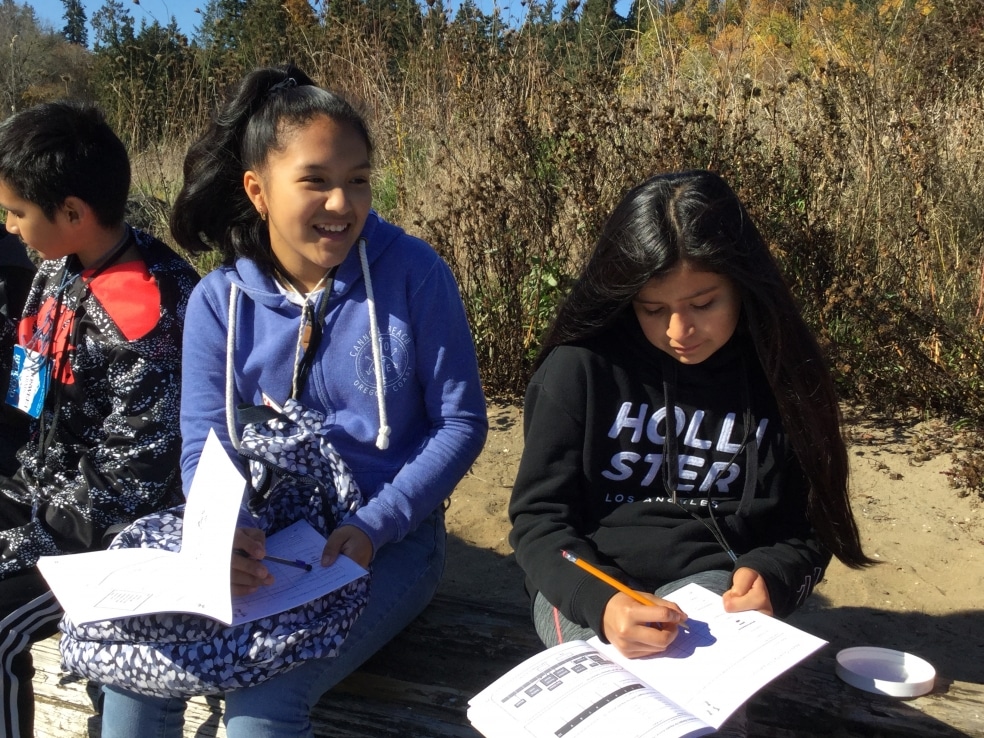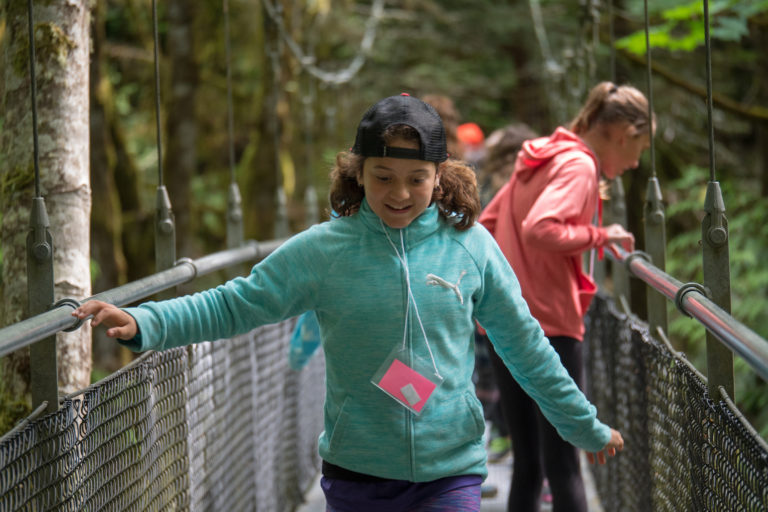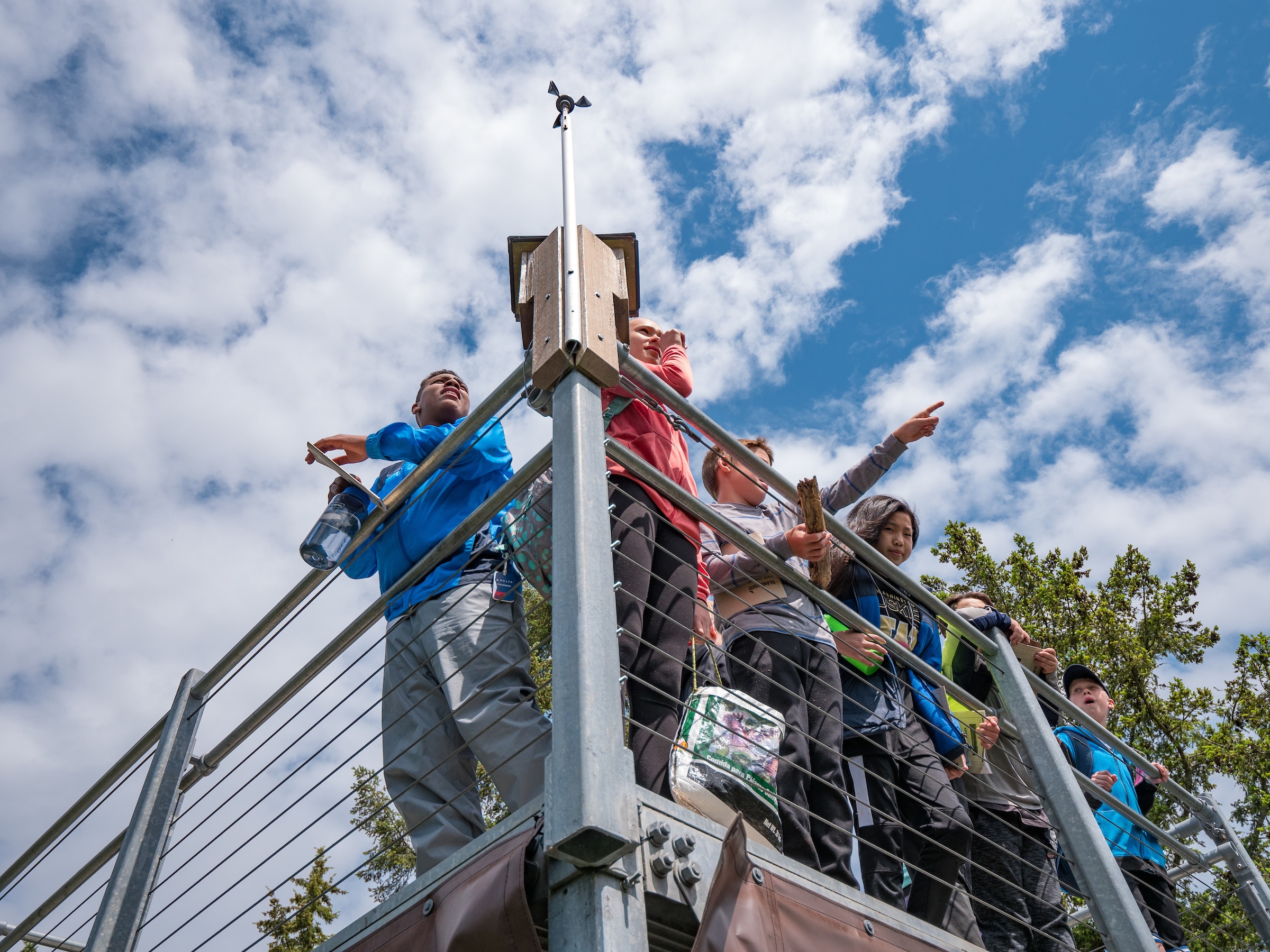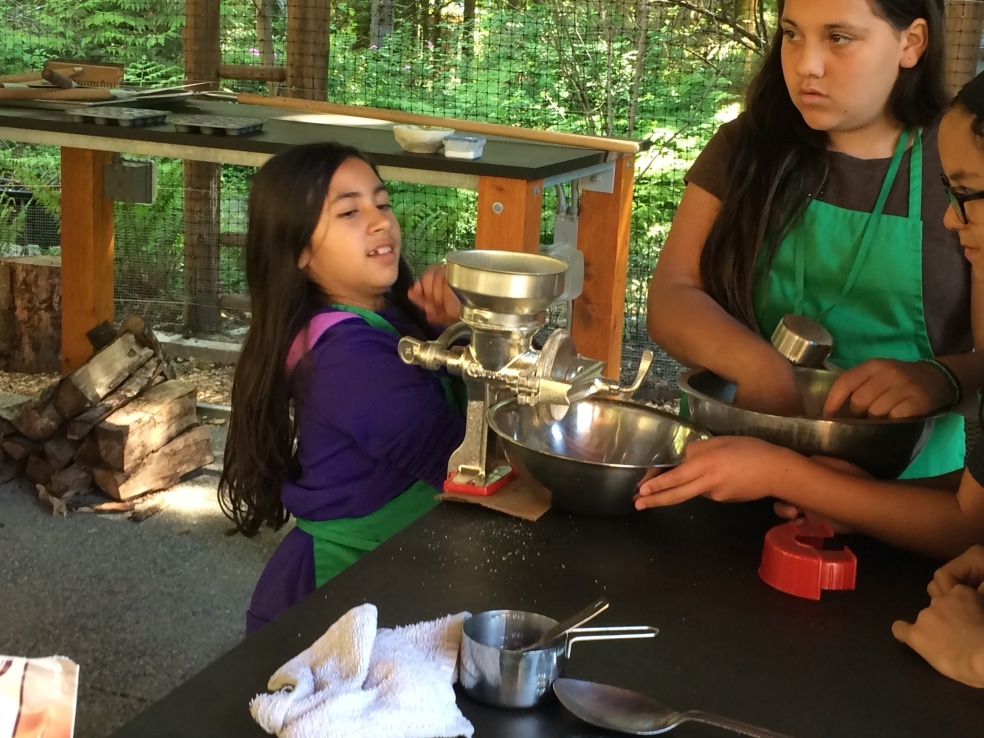Each week, our School Overnight Program has a lofty goal — to engage curiosity, build…
Author: Tamar Kupiec
This year IslandWood’s School Overnight Program (SOP) issued its first ever annual report. There are accomplishments to tout: 100% of teachers say that the impact of SOP continues back in the classroom. And statistics to list: 4430 4th-6th graders came to SOP last year. But that is where the resemblance between this document and a traditional annual report ends.
More than anything, the SOP report is the record of a years-long conversation between IslandWood and the schools we serve. The dialogue, at its most basic, goes something like this: We hear you. This is what we’re going to do. Here’s how you can help. And here is our timeline. At its loftiest, the report is IslandWood’s promise to its stakeholders to design and deliver the best possible program for our students. It is our way of being accountable to our schools and of giving them the proof they need to stay involved and invested and to keep coming back.
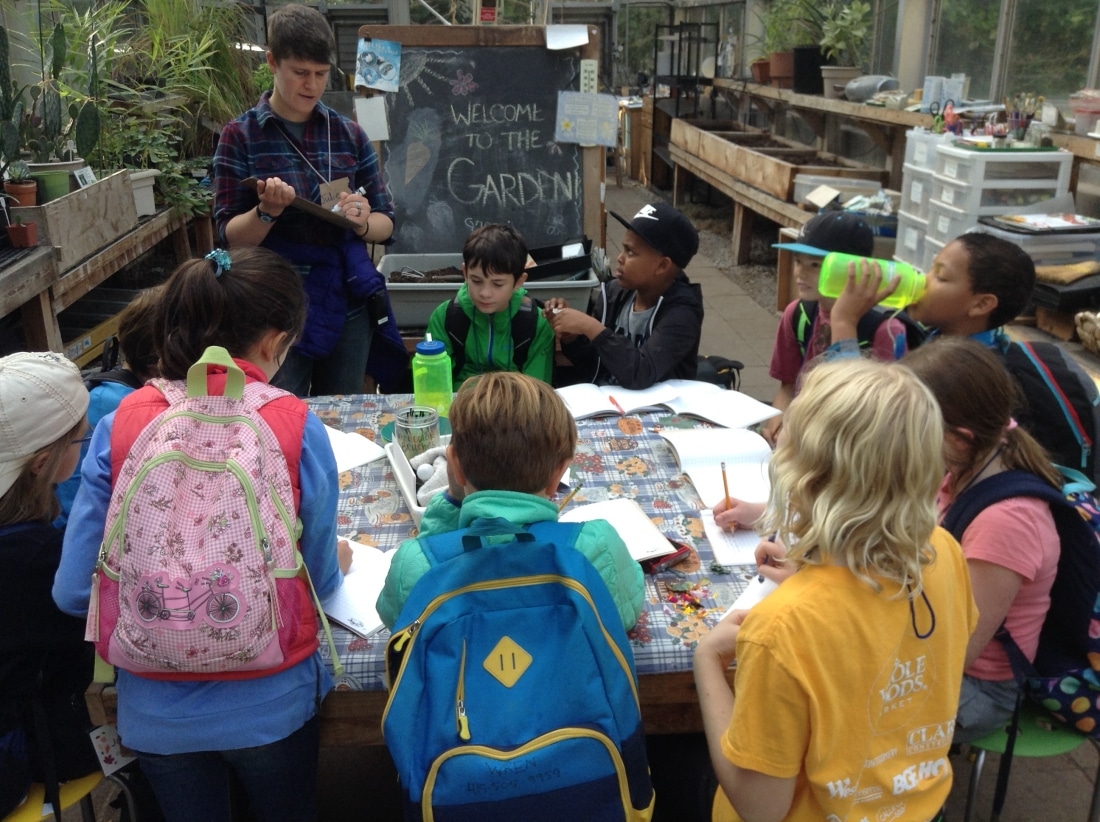
School Overnight Program students talk with their instructor in the Garden Classroom.
We hear you.
Six hundred teachers and chaperones from 90 schools across Puget Sound take part in SOP. We ask every one of them to share their experience and voice their needs. SOP typically runs from Monday to Thursday. Wednesday we host a debrief lunch with lead teachers. Friday we send out a survey to all teachers and chaperons. And three months later, we send teachers a second survey. Finally, once a year we convene a community engagement forum with teachers, SOP alumni, past graduate instructors, and community leaders to develop ideas for improving our practices in culturally responsive and equitable education.
This is what we’re going to do.
All these surveys and meetings generate an abundance of information. Twice a year Director for Education Leadership, Sapna Sopori assembles the SOP team for a “data dig.” We take stock of where we’ve succeeded and look for trends in feedback. We are realistic about our constraints and ambitious about our goals. One word, emphasizes Sopori, that you won’t hear is “should.” Nothing is offered without a commitment to seeing it through to the best of our ability. If teachers ask for something we can’t deliver or something that we attempt but don’t accomplish, we’ll let them know why and how we plan to move forward.
Trends capture the experience of the majority. However, our commitment to equity means that we listen for minority voices too. For example, we have a school with a large special education population and a large number of students who experience homelessness, a combination not reflected in majority trends. Teacher and chaperon feedback from this school revealed that our staff and graduate student instructors, although responsive and well-intentioned, were not prepared to address the needs of these students. And so last fall we provided our staff and grads with training in adverse childhood experiences and created written materials for engaging students on the ADHD and autism spectrums.
Here’s how you can help.
We are amazed by the good work of our schools, their zealous preparations for SOP and commitment to their students. Our job is to amplify their good work in ways that may not be accessible to a teacher in a classroom.
As we strive to improve SOP in areas such as meeting the needs of special education students, we in turn ask something of our schools. In our annual report, we asked them to remember that our graduate program is the first year of a master’s in general education. And we asked them to use the teacher pre-trip questionnaire to share strategies that work in their classroom. We are doing this together.
And here is our timeline
For every proposal, there is a timeline. Schools reported that they were enthusiastic about “supergrouping,” the practice of bringing together two field groups from two schools to facilitate learning with peers from different backgrounds. We happily proposed to do more of this sort of collaboration, but recognized the need to provide greater support for our instructors. The annual report gives this timeline: “build [supergrouping] into instructor training and modeling over fall, train mentors to support in fall, increase expectations in winter, fully supported by spring.” We’re right on schedule.
We will remain committed to innovation and self-scrutiny. We will involve schools in our work. “You heard me. Thank you. And here’s more” is something we often hear from teachers. “That’s the relationship we want,” Sopori says.
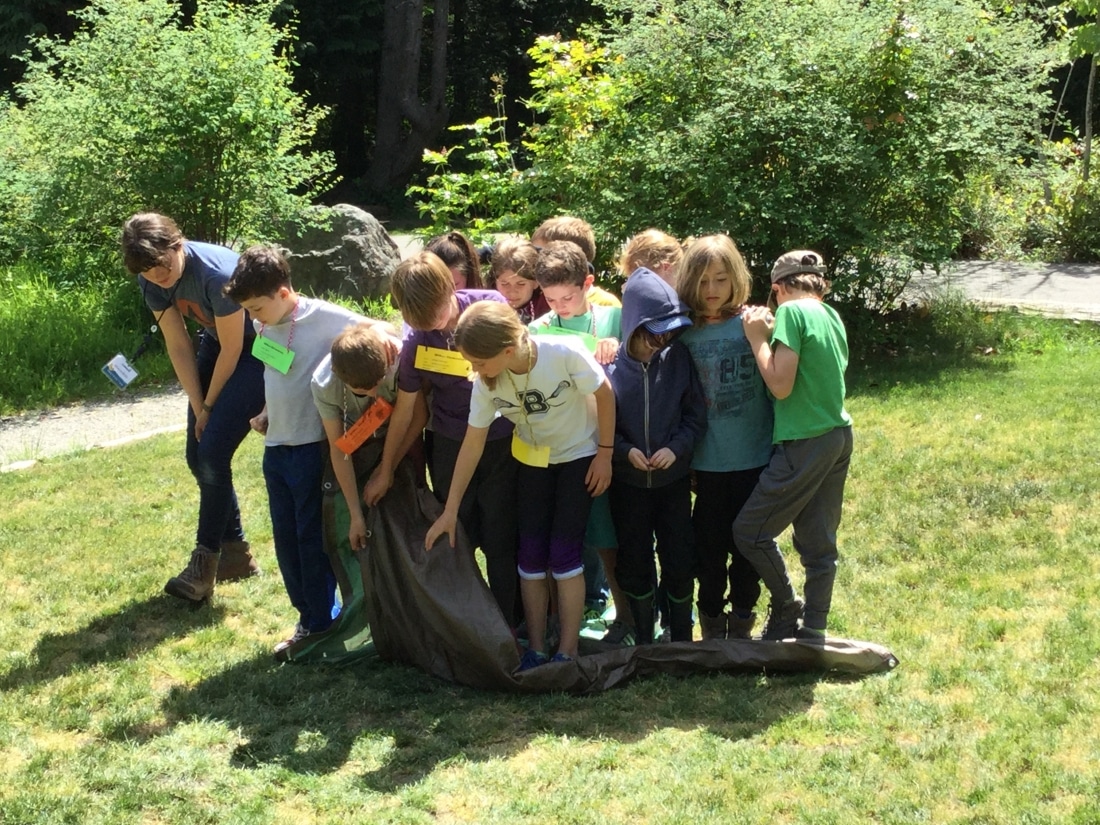
A group of School Overnight Program students participate in a team building exercise at islandWood.
Look for the second SOP Annual Report this summer. There will be new trends to report, and there will be new ideas in response. We will let our schools know what worked the previous year and what didn’t, and what work remains to be done. We promise to be accountable. The proof is in the report.

